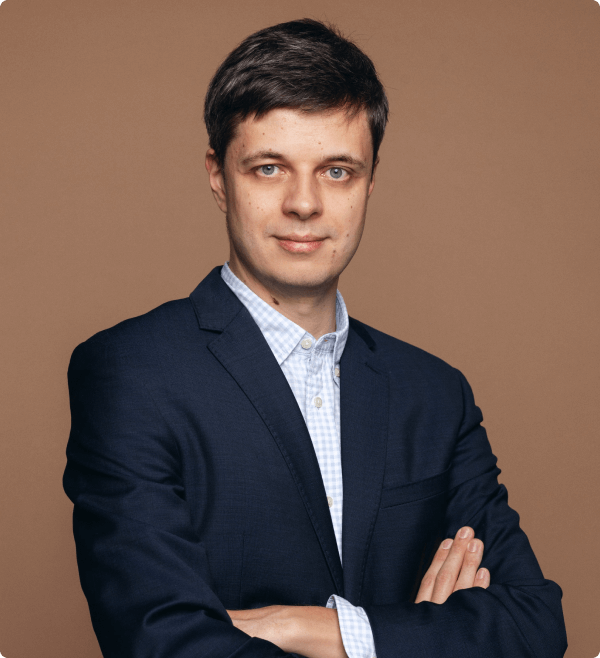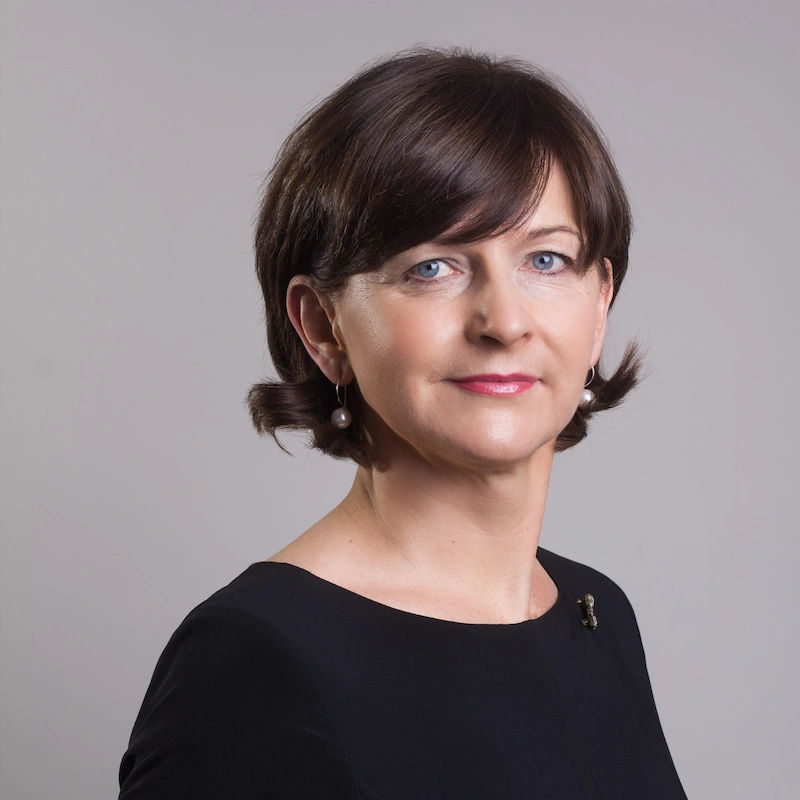Economics (doctoral)
ISM University has a doctoral program in economics together with Vytautas Magnus University and Mykolas Romeris University.
Sign up for a consultation
ISM Doctoral programme in Economics is designed to develop competencies allowing to identify relevant economic, financial and societal problems, to conduct high quality research and publish their results in internationally recognised peer-reviewed journals.
Doctoral students are encouraged to take part in international internships and courses at foreign Universities and to obtain European Doctorate Certificate together with their Doctoral diploma.
ISM doctoral student research contributes to the understanding of monetary policy and financial asset valuation, analysis of economic sector networks and the spread of economic shocks, national tax competition and corporate tax evasion, financial behaviour, corporate insolvency, the impact of emerging technologies on financial and labour markets, sustainability and other economic phenomena in the different contexts.
Part-time doctoral studies provide an opportunity to combine a professional career with a doctorate. The knowledge and research skills acquired in doctoral studies provide an opportunity to apply research-based solutions in professional activities.
ISM Doctoral Studies in Economics are organized together with Vytautas Magnus and Mykolas Romeris University.
Learn more about the program
Program values

Courses
Econometrics
Objectives of the course – to deepen econometrics knowledge. Main themes: The classical linear regression model. Model specification. Violation of the assumption of the basic model, eg. heteroskedasticity, autocorrelation, multicollinearity. Dummy variables. Simultaneous equations models. Time series.
Study forms: individual work, consultations, exam.
Research Methodology
This course explores social research development and requirements for doctoral dissertations in social sciences. It covers scientific approaches, research process, and conceptual foundations, introducing theory building, testing methods, and research strategies. Discussions include research dilemmas and publishing ethics. Emphasis is placed on guiding doctoral students in developing their research projects. By the course’s end, students develop extended research proposals for their research.
Students will be introduced to main the approaches of theory building and testing and the criteria of research strategy choice. The main dilemmas of research as well as publishing ethics will be discussed.
A lot of time and attention will be dedicated to doctoral students’ research project development. Thus, during the course, students will develop and advance their own research and at the end of the course will present the extended research proposal of a doctoral research.
Modern economic theories and macroeconomic analysis
Objective of the course – to introduce to the modern economics issues, to develop economic thinking. After this course students must to gain skills in analyzing and evaluating the macroeconomic processes using modern economic theories.
Form of studies: Lectures and seminars.
Thematic: modern economic theories and macroeconomic analysis
Didactics of higher education
Didactics of higher education is an applied branch of education science. The following issues are analyzed in this course: the main phenomena of education and their relationship; the most significant teaching and learning theories; learning by doing. Teaching methods and their applications are covered: lectures, learning in small groups, projects, case studies, discussions, workshops, debates, brainstorming, etc. The other issues are teaching resources; teaching models for effective learning (consecutive and problem based), development of study programs and their logic, goals, tasks and structure; strategies for the development of productive learning environment; open and distance learning; control, assessment and evaluation of study results; assessment systems; problems of study quality assurance at university: dimensions, standards, criteria and methods.
Philosophy of science and methodology
The aim of the course is to help the participants to acquire an intellectual identity through an understanding of the main problems and positions in the theory and philosophy of the human and social sciences as this is reflected in the discussions of these issues in the last half century and give the participants an understanding of the relation to the history of these science The objective of the course should be fulfilled by giving an introduction to fundamental problems in the philosophy of the human and social sciences and to some important positions concerning the nature and methods of these sciences. The course also aims to relate such problems and discussion to issues of research design and methodology and to the function of these sciences in relation to issues of problem solving in society and in business organisations. In discussions time and attention will be dedicated to the doctoral student research projects development. During the course students will work and develop their own research and at the end of the course will present the extended introduction and research plan of a doctoral dissertation.
Introduction to Scholarship
This Doctoral Course aims to develop doctoral students’ teaching, research, and transferable competencies enabling them to pursue an academic career at a university or outside. The Course consists of Seminars and an Academic Internship.
The seminars are aimed to provide knowledge and skills necessary for scholarship proficiency. The seminars cover research ethics, academic writing and publishing, academic presentation, teaching, research projects’ development, and management as well as specialized scholarly software mastery issues.
The Course aims to develop doctoral students’ teaching, research, and transferable competencies enabling them to pursue an academic career at a university or outside.
The course is dedicated to increasing students’ awareness of scholarly activities and developing teaching and research skills. The course is composed of two main components: Seminars and an Academic Internship.
Publications of Doctoral Students
Admission
Qualification requirements
- Master’s degree or equivalent higher education
- Scientific experience, participation in scientific activities
- English language knowledge
Online application
Documents for application
- Payment for document registration
- Diploma of Master’s degree or qualification adequate to it, its annex/supplement
- Recommendations from two scholars. Recommendations must be sent by a scholar (from a personal e-mail) to this e-mail address phd@ism.lt
- Curriculum Vitae (signed by applicant)
- List of applicant’s scientific publications (submitted in full biobliographic description) and their copies (submitted together with a copy of journal’s cover and contents page); (if a scientific article in not yet published – a document issued by the editorial board of a scientific journal certifying the acceptance of an article for publication (after the reviewing procedure) and its manuscript)
- Electronic copy of the scientific research project in .doc or .docx format, if two topics are indicated in the application, then 2 scientific research projects need to be submitted
- Copy of a personal identification document
- Applicants whose documents presented for admission are issued under different surnames must submit a copy of the document confirming the change (submit copies and show original).
- Other documents which an applicant wishes to submit
Research proposal
Below you will find available topics in Lithuanian and English, as well as potential supervisors.
- Taxation effect on the economy and society. Supervisor: Prof. dr. Aras Zirgulis
- Research on Macro-Finance, Monetary, Fiscal Policy, and Sustainability Factors in the Economy. Supervisor: Prof. dr. Valdonė Darškuvienė
- Microeconomics Research on Behavior of Organizations, Businesses, Markets and their Participants and Sustainability Policy. Supervisor: Prof. dr. Valdonė Darškuvienė
- Social dimensions of sustainability and economic value creation: traditional and emerging themes and assessment methods. Supervisor: Prof. dr. Virginija Poškutė
Admission deadlines
- Submission of applications 2024 06 03 – 2024 08 29
- Individual motivation interviews at Admission Committee 2024 09 02 – 2024 09 17
- Doctoral committee meeting without the participation of applicants (calculation of competition results) 2024 09 02 – 2024 09 17
- Informing applicants about the results of the competition 2024 09 18
- Submission of appeals to the doctoral committee 2024 09 19 – 2024 09 23
- Submission of appeals to the head of the doctoral institution to which the person applied 2024 09 24 – 2024 09 26
- Announcement of the list of those invited to doctoral studies 2024 09 27
- Signing study contracts with the doctoral institution 2024 09 28 – 2024 09 30
*This year’s dates will be updated.
Admission rules and regulations
Admission fee
-
- Admission fee is 175 € (EU citizens), 175 € (non-EU citizens).
Payment details for the admission fee:
Payment code: 190 Study code: 140 Payer code: 11999998
Beneficiary: ISM University of Management and Economics
Adresas: Gedimino pr. 7, LT-01103 Vilnius
Company code / VAT code: 111963319 / LT119633113
Bank: Luminor Bank AS
Account No.: LT574010049500436891
SWIFT: AGBLLT2X
Amount
- 175 € (payment of admission fee only)
Tuition fee
- 6224,5 EUR (full-time studies, 4 years);
- 4149,5 EUR (part-time studies, up to 6 years).
*Per semester
Scholarships, thesis defense and doctoral committee
State scholarships for full time studies (4 years)*
The scholarships will be offered to full-time doctoral students in Management and Economics. A scholarship covers the tuition fee and provides a student grant (for first-year doctoral students – 1330 EUR/month; for second, third, and fourth year doctoral students – 1540 EUR/month). Candidates to the state doctoral study scholarships are selected by means of competition according to the results of the competitive entry score.
Tuition fees discounts
Doctoral students who are graduates of an ISM Bachelor’s, International Master’s, or Master’s degree in Management are granted an ISM graduate discount. The amount of the discount is 30% of the tuition fee paid for the entire study period. The discount is also given to doctoral students who have received a high competitive score.
Dissertation defence
Doctoral candidates may present their dissertation for defense when they:
- Pass all the examinations provided in the doctoral study program
- Present their most significant research results in at least 2 articles published (or accepted for publication) in scientific peer-reviewed journals, or scientific monography
- Present their research results during at least 2 international scientific gatherings (conferences, seminars)
- Complete academic practice
Doctoral Committee
Doctoral Committee of Economics programme
Doctoral Committee is composed of researchers from all participating partner universities, co-ordinates, and assures the quality of doctoral studies and scientific research. Doctoral Committee evaluates research topics of doctoral students, approves individual study programs, considers doctoral supervision issues, monitors doctoral student research progress, and assesses the quality of doctoral dissertations.
Doctoral Committee of Economics:
- Prof. dr. Vilija Aleknevičienė – VMU
- Doc. dr. Aušra Pažėraitė – VMU
- Prof. dr. Kristina Levišauskaitė – VMU
- Prof. dr. Violeta Pukelienė – VMU
- Prof. dr. Vlada Vitunskienė – VMU
- Prof. dr. Ričardas Krikštolaitis – VMU
- Doc. dr. Mindaugas Butkus – VMU
- Prof. dr. Ilona Bučiūnienė – ISM
- Prof. dr. Valdonė Darškuvienė – ISM
- Prof. dr. Eglė Kazlauskienė – MRU
- Prof. dr. Asta Vasiliauskaitė – MRU
- Prof. dr. Zita Tamašauskienė – VU
- Prof. dr. Daiva Beržinskienė-Juozaitienė – VU
Considering studies at ISM?

